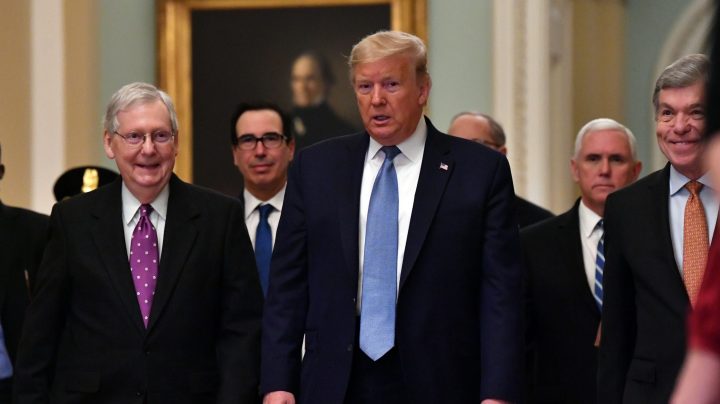
White House may send out $1,200 checks to adults, $500 to children

After this piece was published, President Trump signed a $2 trillion economic relief package that would give Americans these direct checks. Click here to read the latest updates.
The Senate has approved a bill that would provide $1,200 checks to some Americans and $500 to children.
But there are stipulations: the bill would grant $1,200 to individuals who reported up to $75,000 on their 2018 tax returns or — if they’ve already filed — their 2019 returns. Meanwhile, $2,400 would be sent to couples who filed joint taxes and made up to $150,000.
Payments will be reduced for individuals and couples making more than those amounts — until they hit a threshold. Financial assistance will not be granted to individuals making more than $99,000 and couples earning more than $198,000.
Varying amounts had been proposed last week. Treasury Secretary Steven Mnuchin had said earlier that the White House wanted to send $1,000 checks to Americans, which he said would occur over the span of three weeks.
Despite his claim, experts say such a plan will likely take longer. Douglas Holtz-Eakin, who served on President Bush’s Council of Economic Advisors and is currently president of the American Action Forum, said it would take six weeks at minimum to get a plan like this set up and executed.
“It’s not particularly efficient — people don’t update their records, and there are a lot of checks that will not find their intended recipients,” he told Marketplace.
The government will be able to send these deposits to many Americans, however, because it has your information based on W-2s and tax returns, according to Louise Sheiner, policy director for the Hutchins Center on Fiscal and Monetary Policy at the Brookings Institution.
But would undocumented immigrants qualify to receive this money?
Sheiner pointed out that many undocumented Americans do file taxes, using what’s called an Individual Taxpayer Identification Number, issued by the IRS. But in 2008, they were denied checks as part of an economic stimulus package.
“This would depend entirely on how the legislation is written,” Sheiner said over email. “We’ll have to wait and see.”
The Trump administration’s plan is part of a more than $1 trillion package to defend the economy against the COVID-19 crisis.
The plan will need to be approved by Congress. While the Senate is controlled by Republicans, Democratic leaders have expressed their disapproval with some of the Trump administration’s proposals, arguing they don’t go far enough.
“A single $1,000 check would help someone pay their landlord in March, but what happens after that?” asked Senate Minority Leader Chuck Schumer on Wednesday.
There’s a lot happening in the world. Through it all, Marketplace is here for you.
You rely on Marketplace to break down the world’s events and tell you how it affects you in a fact-based, approachable way. We rely on your financial support to keep making that possible.
Your donation today powers the independent journalism that you rely on. For just $5/month, you can help sustain Marketplace so we can keep reporting on the things that matter to you.












